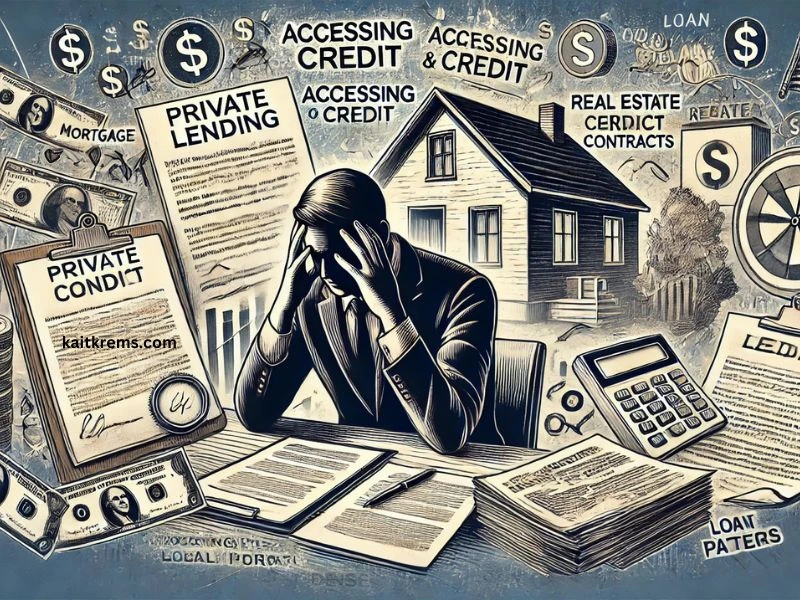When it comes to securing a loan for your business or real estate venture, choosing the right lender can make or break your success. Kennedy Funding has long established itself as a key player in the hard money lending space, offering quick, flexible financing options for borrowers who often face challenges securing traditional loans. But recently, Kennedy Funding has been the subject of a heated debate, with claims surfacing in a series of “Ripoff Reports.”
Are these claims credible? How do they impact businesses and borrowers? And what can you do to protect yourself when navigating the complex world of hard money lending? This blog dives into the Kennedy Funding ripoff report allegations, analyzing their validity and exploring practical steps to keep your business safe from predatory lending practices.
Who Is Kennedy Funding?
Kennedy Funding is a leading player in the realm of commercial real estate and hard money lending. For years, the company has built a reputation for offering loans that other lenders wouldn’t dare touch. Targeting unique borrowers—like those with low credit scores, unconventional projects, or urgent funding needs—Kennedy Funding prides itself on quick approvals and tailored loan solutions.
Their services range from bridge loans for construction projects to funding for international real estate ventures. Kennedy Funding operates in a high-risk lending space where many financial institutions hesitate to work, making them an attractive option for businesses that need cash fast.
But with high rewards often come high risks. Companies like Kennedy Funding must carefully balance competitive lending practices with the ability to properly vet their borrowers and terms.
What’s the Buzz About the Kennedy Funding Ripoff Report?
Over time, controversial claims regarding Kennedy Funding have surfaced on consumer review platforms like Ripoff Report, where customers voice grievances regarding services or transactions they find concerning.
Some allegations against Kennedy Funding include the following:
- High-interest rates that can spiral rapidly.
- Loan commitments made but not followed through.
- Unexpected fees buried in contracts.
- Miscommunication during the loan process or failure to deliver results.
For businesses struggling to secure financing, issues like these can feel like a dealbreaker. Content found on websites like Ripoff Report is often emotionally charged, leaving readers wondering whether they represent a pattern of behavior or isolated experiences involving dissatisfied borrowers.
Can We Trust These Allegations?
When exploring the credibility of such reports, it is essential to approach the topic with critical evaluation. Here are questions to consider when assessing complaints against a lender like Kennedy Funding:
- Are the claims backed by evidence? Many consumer complaints fail to offer documentation, such as contracts, written correspondence, or proof of misleading behavior.
- Are similar issues raised on multiple platforms? If similar complaints arise across other review sites, it could signal a recurring problem. However, if allegations are isolated to one platform, this could reflect bias or gaps in perspective.
- Does the business directly address these claims? Reputable companies often take steps to address unsatisfied customers by responding professionally to disputes, resolving concerns, or providing additional clarity.
While some accusations may involve genuine misunderstandings or mismatched expectations, others may result in overblown accounts stemming from incomplete knowledge of hard money lending practices. Bear in mind that certain loan terms—such as higher interest rates—are inherent risks borrowers assume when engaging with alternative lenders like Kennedy Funding.
The Impact on Businesses and Borrowers
The controversy surrounding Kennedy Funding leaves many entrepreneurs and businesses asking, “Should I steer clear, or is this just bad PR?” Here’s how such lending disputes can impact borrowers:
- Reputation: Borrowers may feel stigmatized after entering agreements that seem unfavorable. Taking the time to thoroughly communicate with your lender could help avoid misunderstandings.
- Financial Struggles: If borrowers accept unfavorable terms, they may find their business strapped for cash in the long term.
- Credibility of the Lender: Allegations like these can deter future borrowers from working with a lender, regardless of whether the claims paint an accurate picture.
It’s clear that moments of misalignment between lenders and borrowers are merely part of industry realities—but they shouldn’t define the entire experience.

How to Avoid Predatory Lending Practices
Whether you’re working with Kennedy Funding or another hard money lender, here are steps to ensure your borrowing experience is productive and transparent:
1. Vet the Lender
Do thorough research before signing on the dotted line. Check their background, certifications, and Better Business Bureau (BBB) rating.
2. Understand Your Loan Terms
Pay attention to the interest rate, fees, and repayment schedule. If something feels unclear, consult a financial advisor to help decode the contract.
3. Document Everything
Keep a record of emails, contracts, and verbal agreements. This paperwork can serve as evidence in the case of disputes.
4. Ask Questions
Don’t hesitate to ask for clarification—lenders should be willing to answer your questions or address your concerns.
5. Use Trusted Resources
Organizations like the Consumer Financial Protection Bureau (CFPB) offer insights into understanding loans and knowing your rights as borrowers.
Insights from Industry Experts
We reached out to experts in the lending and financial industries to understand best practices borrowers should follow to safeguard themselves.
“Borrowers often skip the fine print in loan agreements, which is where hidden fees or interest adjustments can live,” states John Herrera, Senior Lending Consultant. “Take time to thoroughly review your contract and involve a lawyer if necessary. Transparency and accountability go both ways.”
Alice Serano, a financial advisor, adds, “If it feels too good to be true, it probably is. Genuine lenders will ensure that terms are mutually understood and guarantee open communication from the start.”
Steps to Take if You’ve Been Targeted
If you believe you’ve fallen victim to unethical lending practices, act swiftly to protect your financial interests:
- Contact the Lender
Attempt to resolve the issue directly. Clear, respectful communication remains key.
- Seek Legal Advice
Lawyers specializing in financial law can provide invaluable guidance and may help you recover lost funds or negotiate better terms.
- File a Complaint
Submit complaints to platforms like the Better Business Bureau (BBB) or relevant consumer protection agencies.
- Share Your Experience
Joining online borrower communities may validate your concerns and connect you with resources that help restore your business stability.
Together Toward Transparency
No lender or borrower is immune to challenges within the financial industry. When choosing a lender, performing due diligence is essential—but so is maintaining pragmatism. Allegations, such as the Kennedy Funding ripoff report claims, highlight the importance of fostering transparent partnerships between lenders and borrowers.
If you’ve worked with Kennedy Funding or have tips to share, join the conversation in the comments or contact us directly. Together, we can build a more informed consumer network.






